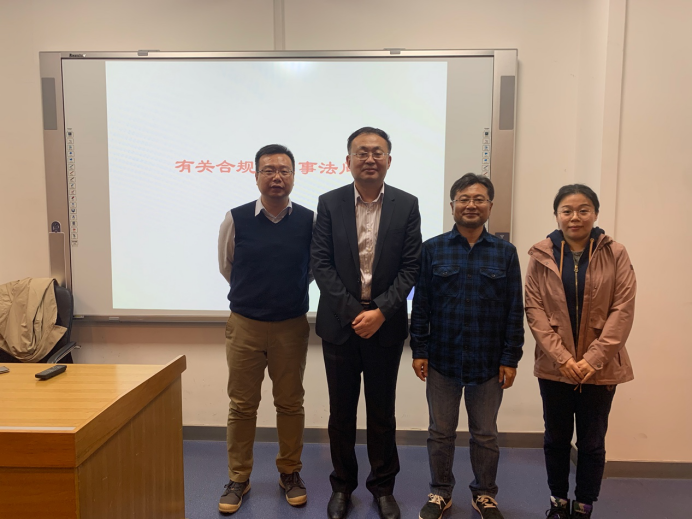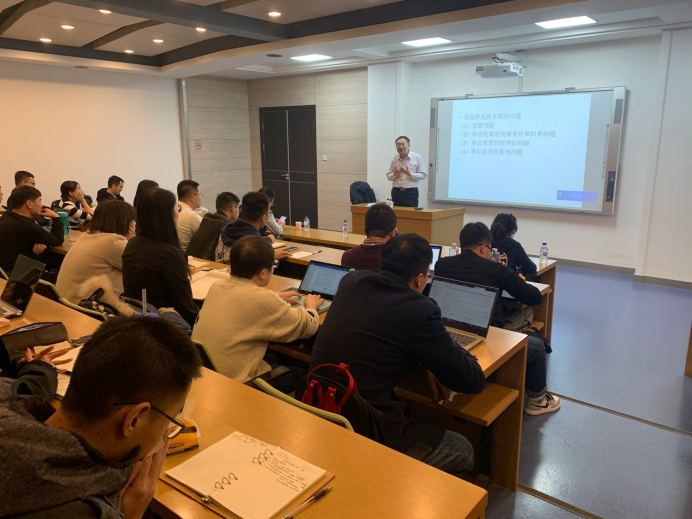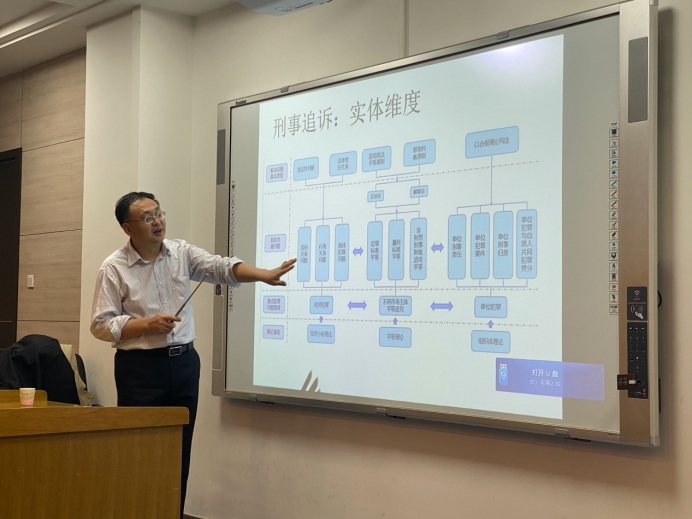Professor Shi Yan’an, director of Criminal Law Research Center, Renmin University of China, vice president of Chinese Society of Criminology and executive director of Criminal Law Institution, China Law Society, was invited to give a lecture on “Criminal Law Issues Concerning Compliance” on October 22. Professor Wang Chong, Professor Zheng Junnan, Dr. Wang Ruosi and students from Jilin University School of Law attended.

Professor Shi Yan’an approached from three aspects: “current problems involved in criminal compliance”, “the background and policy objectives of compliance in criminal system” and “the adjustment of compliance mechanism”. In the first session, Professor Shi introduced the case of US sanctions against ZTE Corporation in 2018, which led to the main problems involved in criminal compliance: First, effective application of compliance can avoid both internal and external risks. Secondly, there are disadvantages in judging criminal responsibility by the traditional standards, but it is beneficial to judge criminal responsibility from the perspective of compliance. Thirdly, three solutions are put forward for the procedural problem: conditional non-prosecution, relative non-prosecution regarding confession and accepting punishment, and compulsory compliance of enterprises by means of procurator suggestions. Fourthly, by comparing the punishment modes between China and the United States, Professor Shi put forward the idea of adding compulsory compliance in the measurement of penalty in China.

In the second session, Professor Shi illustrated the background and goals of criminal compliance. The original intention of criminal compliance in China is to protect private economy and promote the development of market economy, but the mandatory compliance system implemented in the United States is to introduce strict regulations on enterprises. Furthermore, he pointed out that there is “overlap” in criminal compliance theory, which involves industrial regulations, cultural traditions and other issues.

In the third session, Professor Shi focused on the adjustment of compliance mechanism. Traditional corporate governance is the combination of external economic, administrative regulation and internal corporate system. In this model, judicial organs play a preventive role and are authorized to give punishment. Therefore, it is necessary to adjust the functions of judicial organs. For example, more active prevention measures and governance strategies should be applied by judicial organs. In addition, relief functions can be set up, including establishment of trusteeship and bankruptcy mechanism to solve the issues concerning relief.
